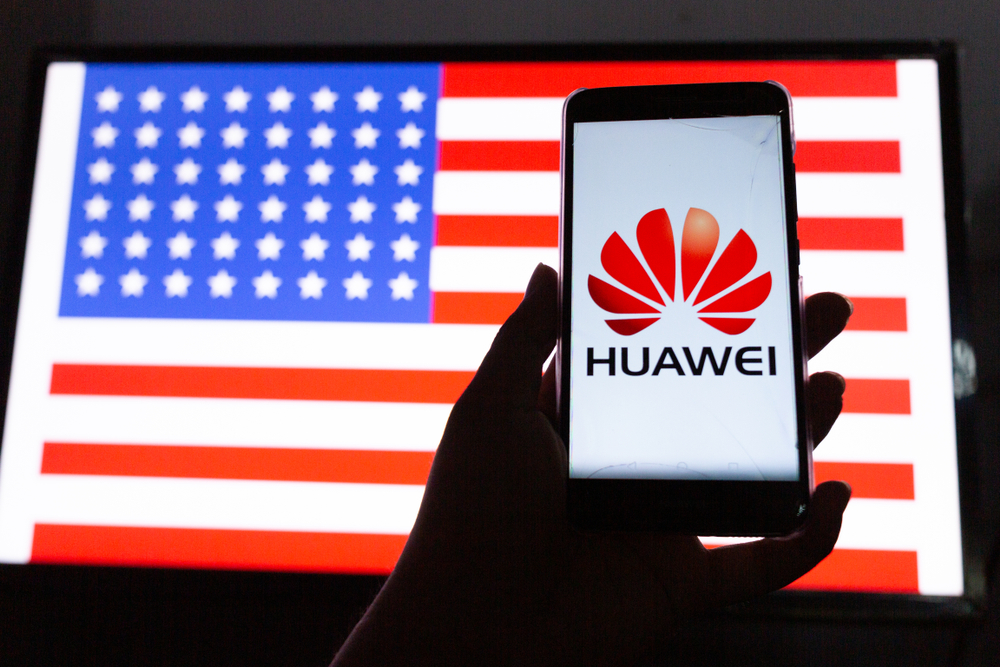Huawei Equipment Hit With $1 Billion 'Rip and Replace' Bill
The "rip and replace" bill is meant to help rural networks get rid of Huawei equipment.

The U.S. Senate unanimously passed the Secure and Trusted Communications Networks Act of 2019 on Thursday. The bill, which now heads to Donald Trump for approval, would establish a $1 billion fund to help rural telecommunications networks remove and replace Huawei and ZTE equipment.
U.S. federal agencies have been banned from purchasing Huawei and ZTE equipment through the National Defense Authorization Act of 2019. The Secure and Trusted Communications Networks Act would prevent the Federal Communications Commission (FCC) from supporting the purchase of that equipment by service providers.
- What are the best CPUs for gaming?
- Get the best gaming graphics card for your rig
- Intel's 10th Gen processors join Huawei MateBook X Pro laptop
The bill's passage comes shortly after the FCC adopted a rule preventing telecoms from using the Universal Service Fund, which subsidizes the expansion of broadband availability throughout the country, to purchase equipment from "companies posing a national security threat" (read: Huawei and ZTE and other Chinese companies).
Yesterday, the FCC announced that it "began collecting information from telecommunications carriers on the use of Huawei and ZTE equipment and services in their networks." Universal Service Fund recipients have until April 22 to share this information with the FCC via a dedicated web portal.
The FCC said it wants to know "whether carriers own or are using equipment or services from Huawei or ZTE; the type of such equipment or services; the costs associated with purchasing and/or installing such equipment and services; and the costs associated with removing and replacing such equipment and services."
Huawei gave The Hill the following statement in response to the bill's passage:
"Unfortunately, the legislation that was just passed is considerably underfunded, would take longer than anticipated and could put at risk some of our customers, who serve the most underserved areas. This legislation will simply reduce the ability of broadband providers to provide the most secure network equipment and in turn hurt local consumers and businesses."
Get Tom's Hardware's best news and in-depth reviews, straight to your inbox.
We wouldn't be surprised if Huawei contests this decision--it's sued the U.S. government multiple times over the last few years. A District Court judge recently said the company couldn't sue over the federal government's equipment ban, however, because the rule merely affects how the government spends its money.
This bill--as well as the FCC's rule--are similar in concept. U.S. telecoms providers are technically allowed to use Huawei and ZTE equipment; they simply can't use funds from the Universal Service Fund to do so. We'll see how the companies respond if or when President Trump signs the bill into law.

Nathaniel Mott is a freelance news and features writer for Tom's Hardware US, covering breaking news, security, and the silliest aspects of the tech industry.
-
bit_user Even though I'd rather not see the Chinese telco equipment used for US Government or military communications, I don't see the urgency of ripping it out from rural networks. It seems to me that the risk is low, and I'm sure there are better ways to spend $1B.Reply -
drdeb Replybit_user said:Even though I'd rather not see the Chinese telco equipment used for US Government or military communications, I don't see the urgency of ripping it out from rural networks. It seems to me that the risk is low, and I'm sure there are better ways to spend $1B.
Do YOU live in rural America? I DO!
There is one Internet provider for me and NO competition! This one provider- Windstream- is currently in bankruptcy. Service is dicey and much more expensive than in cities and suburban America where there is competition. Where I live, there is no choice. I betcha they have cut corners by purchasing these cheaper Chinese products. -
bit_user Reply
I'm not sure we're in disagreement, actually.drdeb said:There is one Internet provider for me and NO competition! This one provider- Windstream- is currently in bankruptcy. Service is dicey and much more expensive than in cities and suburban America where there is competition. Where I live, there is no choice. I betcha they have cut corners by purchasing these cheaper Chinese products.
I'd rather see $1B go towards adding new equipment, for instance, rather than just replacing functioning equipment that's already deployed and doing its job.